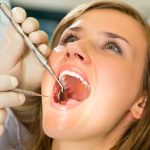Kid’s teeth are important in the development of a child. Usually, teeth begin to come out between the ages of 6-9 months after birth. This is a crucial stage, and parents are encouraged to observe the progress of their kids as they go through this stage. The fact that the growth of primary teeth poses a challenge to kids means that parents should help their children in managing this stage. Since primary teeth are not permanent, children begin to lose teeth when they reach the age of 6 years. However, the timing can vary from one child to the next. Studies show that girls lose their primary teeth earlier than boys do. According to recent studies, experts suggest that the last Kids Teeth fall out when the child attains the age of 12 or 13 years.
There is the order in which baby teeth fall out. Teeth fall out in the order in which they developed. The first two bottom teeth, usually lower central incisors come out first followed by top incisors. However, a child may lose teeth earlier than expected because of accidents of tooth decay. In such cases, teeth may come out early to fill the gap. However, because of limited space, these early teeth may be crocked since teeth require enough space to sprout.
This stage is preceded by excitement while some children are nervous about this vital milestone age. This is why you need to help your child to manage his or her expectations. If your child has loose teeth, you should your child to pull out his or her loose teeth to avoid pain. You should grab the teeth and remove them with a fast twist, but you be careful not to pull out teeth prematurely to avoid causing other dental problems. If loose Kids Teeth are taking too long to come out on their own, you should consult your family dentist. If need be, a dentist from Kids Zone may recommend in-office teeth extraction.
During this teething, you should help your kid to adopt best practices to ensure good oral health. You can help them learn and reinforce practices such as brushing, flossing, and avoiding sugary foods and drinks that can cause accumulation of plaque.







